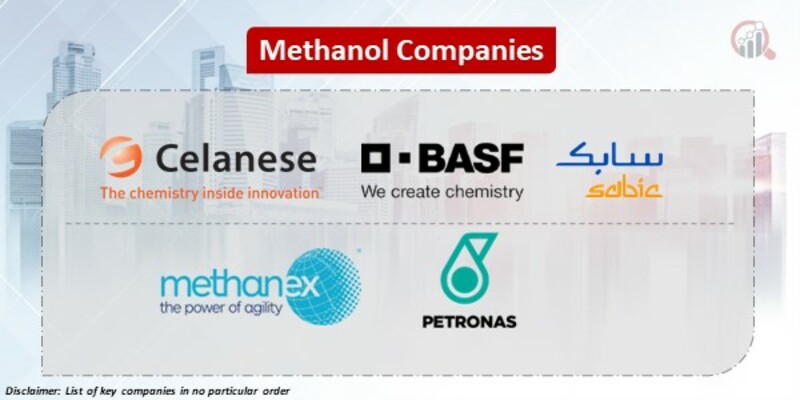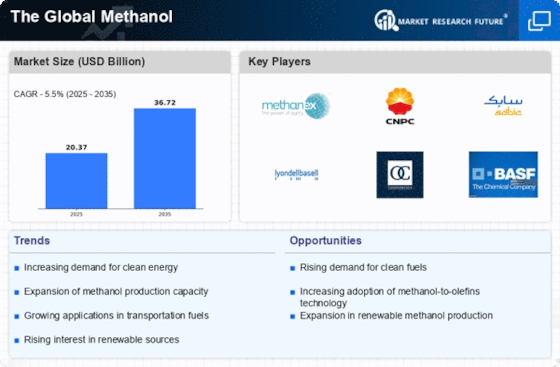Top Industry Leaders in the Methanol Market

The global methanol market is a dynamic and evolving space driven by diverse applications, regional variations, and ongoing technological advancements. Navigating this competitive landscape demands a deep understanding of the key players, their strategies, and the factors influencing market share. Here, we delve into this complex world, exploring the latest industry news, recent developments, and strategies adopted by leading players.
Strategies for Market Domination:
Leading players in the methanol market employ diverse strategies to maintain and expand their share. Some key tactics include:
-
Technological advancements: Investing in R&D for cleaner and more efficient methanol production processes, such as coal-to-methanol and bio-methanol technologies, to cater to the growing demand for sustainability. -
Diversification: Expanding into downstream markets, such as formaldehyde and olefins production, to hedge against fluctuations in the core methanol market. -
Geographic expansion: Entering new markets with high growth potential, particularly in developing economies, to tap into untapped demand. -
Cost optimization: Implementing lean manufacturing practices, optimizing supply chain logistics, and securing long-term feedstock contracts to maintain cost competitiveness. -
Strategic alliances: Forming partnerships with other players in the value chain, such as energy companies, technology providers, and distributors, to leverage complementary strengths and gain access to new markets.
Factors Influencing Market Share:
The success of these strategies hinges on understanding the factors influencing market share. Some key determinants include:
-
Feedstock availability and price: Natural gas is the primary feedstock for methanol production, and its price fluctuations significantly impact the profitability of methanol producers. -
Regional demand dynamics: The demand for methanol varies across regions based on industrial activity levels, urbanization rates, and the adoption of sustainable fuels. Asia-Pacific currently dominates the market, but North America and Europe are expected to see steady growth. -
Regulatory landscape: Environmental regulations and policies regarding carbon emissions and renewable energy adoption influence the demand for methanol, particularly in the context of its potential as a clean fuel alternative. -
Technological breakthroughs: Advancements in bio-methanol and green methanol production technologies can disrupt the market, creating opportunities for new players and changing the competitive landscape.
Key Companies in the methanol market include
- Celanese Corporation (Texas)
- SABIC (Saudi Arabia)
- BASF SE (Germany)
- PETRONAS (Malaysia)
- Methanex Corporation (Canada)
Recent Developments:
March 2021: To boost its methanol production, Fairway Methanol LLC, a joint venture between Celanese Corporation and Mitsui & Co. Ltd, announced the expansion of its facilities.
May 2020: The Mitsubishi Gas Chemical Company, Inc. has been swiftly putting anti-pandemic measures into place and established a Crisis Response Headquarters. To guarantee the safety of its stakeholders, particularly its employees, their families and customers, it continues to improve the anti-pandemic measures in place at its factories and other workplaces tailored to particular operations on a workplace-by-workplace basis.











